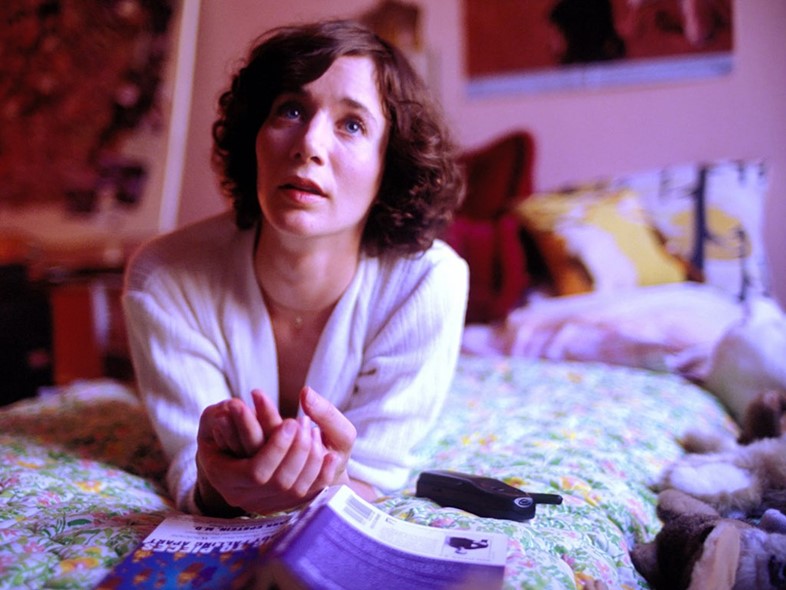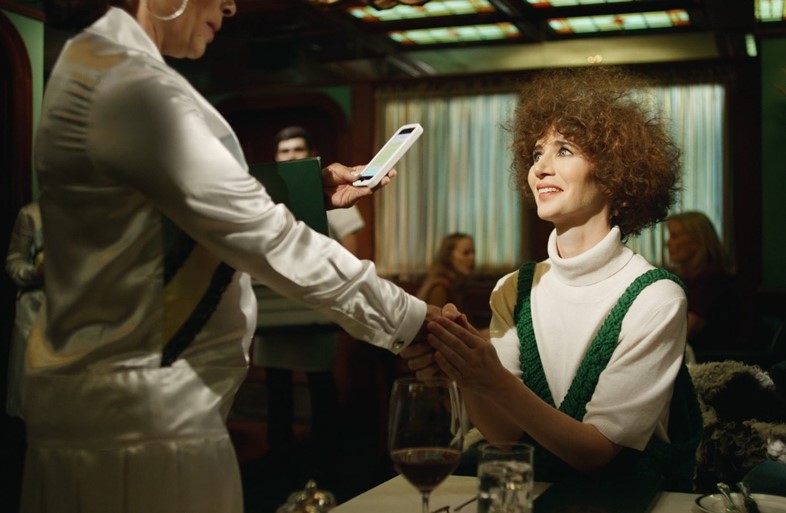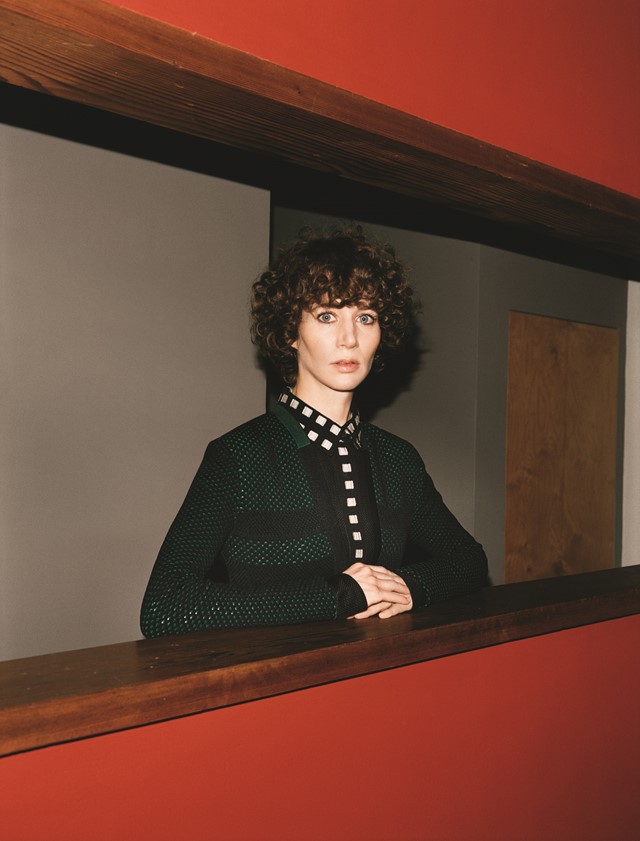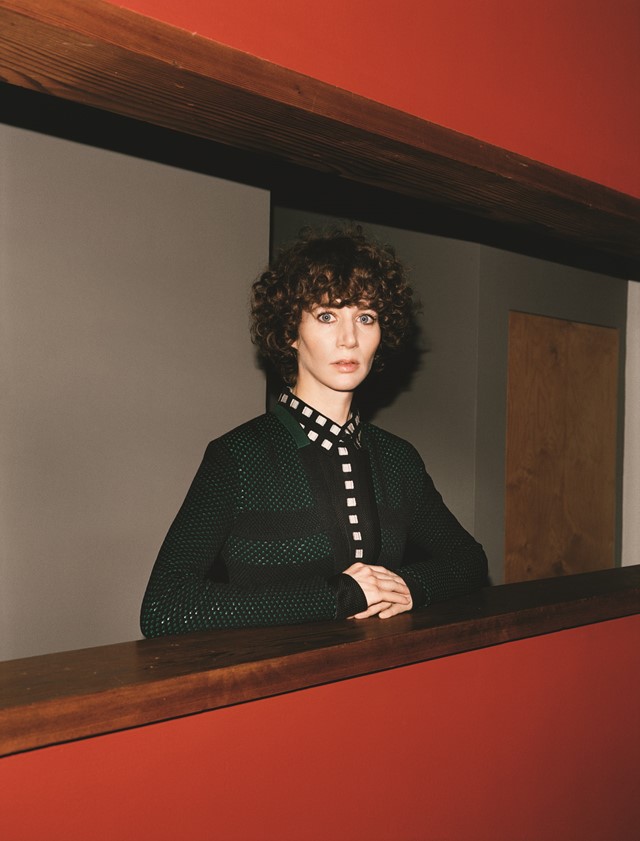We applaud the shapeshifting LA woman who prefers limitlessness to labels—and always has a bright idea up her sleeve
Whether she's designing accessories, developing an app, or directing a film, Miranda July's admirably broad body of work seamlessly bridges the gap between art and life. Since her salad days in Portland's 1990’s Riot Grrrl scene, July has mined the ordinary interactions and everyday scenarios that most people take for granted to inspire her multi-disciplinary work and, over the course of her career, she has confidently worn many hats – from performance artist to debut novelist – and embraced the risk required to step into unfamiliar artistic territory. Today, she staunchly supports younger female artists and writers, such as Lorde and Tavi Gevinson, who, like her, are breaking new ground with their creative output. The common thread that runs through each of July's projects, however disparate they might seem at first glance, is how often they veer toward the sublime upon closer inspection. In this installment of AnOther Woman, we celebrate this singular artist who never stops probing the world and humans around her for creative fuel.
Defining Features
July’s striking vision carries over into her sartorial identity. Her trademark head of curls always accompanies an outfit with a refreshing twist, whether in the form of a collared shirt and tie, hot pink stockings, or leather pants and stilettos. Her official forays into the fashion world have proven equal parts surprising and delightful. A couple of years ago, for instance, she collaborated with indie leather goods brand Welcome Companions on “The Miranda”. This being Miranda, though, the outcome was the chicest survival kit money could buy – complete with an on-the-go nightgown, a mysterious USB flash drive, and a single almond – disguised as a red leather bag. Last year, she partnered with Parisian scarf brand Heart Heart Heart (from Brazilian designer Iracema Trevisan), on a collection of scarves with hidden messages that read like little love notes written on scrap paper: “Everything I said on the phone was a lie,” reads one design. “I miss you horribly and there’s not a Japanese pro-skateboarder staying with me. Ok, there was, but it didn’t work out.”
Dressing on the fringe of societal acceptability has long factored into July’s personal style. As she told New York Magazine’s Vulture in 2014 when discussing how she presented herself in the 90s (think tights over shoes and Marie Antoinette-esque white powdered hair), “The important thing was to exist and dress in a way where no one would be able to know what the point of reference was when they saw me, so they would feel so disoriented that they could only compare me to myself.” July’s sense of feeling like an outsider – on purpose – served her well in the years that followed, as she carved out a space for her work that did not necessarily fit into preexisting molds, particularly where female creators were concerned.

Seminal Moments
July found her early footing in the mid-90s Northwest music scene as a member of the band The Need. She performed alongside mainstay Riot Grrrl bands like Sleater Kinney while sprinkling in her radio dramas and sound collage pieces – released through the record label Kill Rock Stars – whenever she had the chance. Yet, it wasn't until the release of her 2005 full-length film Me and You and Everyone We Know, a beautifully wrought portrait of people fumbling toward love, that critics finally started to pay closer attention to this talented observer of human idiosyncrasies. July’s acclaim in the indie film world opened the door for her to explore her primary themes of interest – loneliness, love, vulnerability, and the human struggle for connectivity – through new mediums.

One standout project, 2013’s WE THINK ALONE, took the form of previously sent email exchanges shared by people like Kirsten Dunst, Kate and Laura Mulleavy, and Lena Dunham, which eventually found readers in 170 countries. July followed up with 2014’s SOMEBODY, an iOS app in collaboration with Women’s Tales (the short-film series run by Miu Miu) that enabled users to send personal – and literally in-person – messages to friends and loved ones at the touch of a button. In recent years, July’s daring debut novel, The First Bad Man, and staged performances like last year’s New Society, which invited audience members to join her in establishing a sort of Utopia, have only further established her as a label-defying artist to keep an eye on.

She’s AnOther Woman Because…
July is, quite simply, a trailblazer. From the start of her career, she has focused her energy on personal growth, societal examination, and the creation of thought-provoking art. Those who write her off as little more than a dilettante (or worse: “quirky”) miss her raison d'être entirely. On the contrary, July throws caution to the wind in her approach to the creative process, inviting all who encounter her work in whatever form it appears to ask themselves: Why master one form and risk growing complacent when we could challenge ourselves to find a new, more precise, or more interesting methods of self-expression? For encouraging women everywhere to hone their craft(s) with abandon, July will always be an AnOther Woman.
